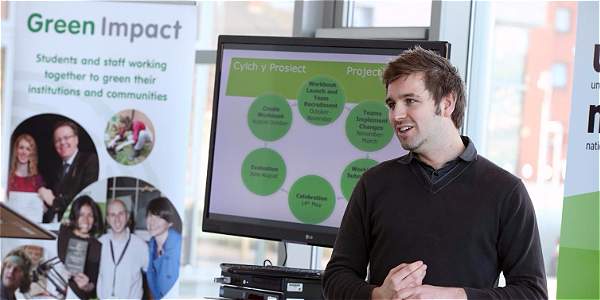No es de extrañarse que QS World University Rankings colocara a cuatro de las universidades británicas dentro de las diez primeras del mundo.
Por: Duncan Taylor.
Reino Unido tiene una reputación global por su excelencia académica, así como por su liderazgo en el campo de la innovación educativa. No es de extrañarse que nuevamente en su clasificación de 2016/17, QS World University Rankings colocara a cuatro de las universidades británicas dentro de las diez primeras del mundo (Cambridge, donde yo tuve el privilegio de estudiar en los años 70, Oxford, University College London y el Imperial College London). Tampoco lo es que durante el ciclo escolar 2014/15 más de 475 mil estudiantes internacionales de más de 180 nacionalidades cursaron estudios en instituciones de educación superior en Reino Unido. Y un dato que me parece sorprendente, de acuerdo con un estudio que realizó el British Council, 38% de los premios Nobel del mundo que estudiaron en el extranjero, lo hicieron en Reino Unido.
Los británicos sentimos un amor natural por las ideas frescas y está dentro de nuestra cultura el buscar soluciones innovadoras a los problemas. Somos naturalmente curiosos y eso nos motiva a ser creativos e innovadores: es una de las razones por las cuales nos llevamos tan bien con nuestros amigos mexicanos: ¡ustedes son muy creativos, también! Los estudiantes que eligen Reino Unido como su opción educativa pueden confiar en que obtendrán el mejor nivel académico que combina la tradición y la modernidad. Eso lo saben los más de dos mil 400 mexicanos que eligieron Reino Unido en 2014/2015 para estudiar alguna licenciatura, especialidad, maestría o doctorado. Las oportunidades son muchas para México. Por ejemplo, Chevening, nuestro programa de becas, apoya actualmente a 82 futuros líderes mexicanos a vivir una experiencia única en universidades británicas de excelencia. Por su parte, el Newton Fund promueve la investigación, desarrollo y aplicación de la ciencia y la tecnología a través de la colaboración entre instituciones mexicanas y británicas.
Nuestro compromiso se ha profundizado aun más con los programas que realizamos en el Fondo de Prosperidad. El portafolio de educación tiene como objetivo compartir las mejores prácticas y la experiencia de Reino Unido en la academia, las escuelas y las instituciones de México. Nuestras líneas de trabajo se centran en colaborar para ayudar a aumentar la calidad en la educación, en desarrollar las competencias para el trabajo y, por último, en fortalecer la enseñanza del idioma inglés.
A través de este fondo financiamos proyectos de alto impacto como Chrysalis, un piloto de innovación educativa creado por Jacaranda Education en asociación con Hacedores. Su objetivo es desarrollar la educación técnica pública en México para adaptarse a las nuevas demandas de la sociedad y la economía actual. Este espacio permitirá que estudiantes, maestros y actores políticos conozcan nuevos entornos didácticos, tecnologías y dinámicas de aprendizaje integrados en la Educación Maker y de STEM (ciencia, tecnología, ingeniería y matemáticas).
La educación es el motor de Reino Unido y es por ello que esta semana somos los anfitriones de dos eventos de gran relevancia en Londres: el Foro Mundial de Educación, que reúne a ministros de Educación en conjunto con funcionarios de alto nivel responsables de la elaboración de políticas de 68 países, incluido México; y la exhibición anual del British Training and Technology Show, BETT, reconocido como el evento mundial líder en la promoción de las tecnologías para la educación.
La innovación en la educación ha propiciado notables cambios en los procesos de aprendizaje y enseñanza, abriendo nuevas oportunidades para el conocimiento. Es así que espero que la colaboración con nuestros amigos mexicanos contribuirá a la mejora en el sector educativo, que reconocemos es una de las prioridades de México.
Fuente: http://www.excelsior.com.mx/opinion/london-eye/2017/01/23/1141522
Imagen: http://www.youngmarketing.co/wp-content/uploads/2015/01/Sistemas-educativos-1-700×325.jpg

















 Users Today : 5
Users Today : 5 Total Users : 35460497
Total Users : 35460497 Views Today : 16
Views Today : 16 Total views : 3419374
Total views : 3419374